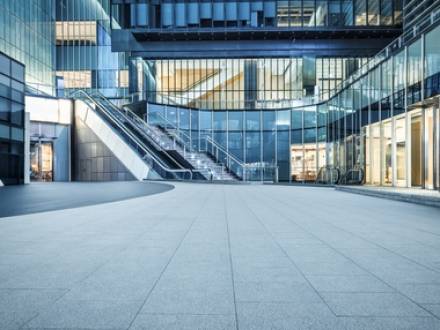Naperville, IL 60563
Ghost Malls to Growth Hubs: Repurposing Malls in Illinois
 Malls were the heart of American consumer culture for decades, reaching their peak popularity in the 1970s and 1980s. Families dined, shopped, and gathered in malls, and teens congregated. Shopping mall construction in Illinois reached its peak in the mid-1980s. By the late 1990s, a significant decline in mall construction had occurred as consumers began to prefer the convenience and lower prices offered by big-box retailers.
Malls were the heart of American consumer culture for decades, reaching their peak popularity in the 1970s and 1980s. Families dined, shopped, and gathered in malls, and teens congregated. Shopping mall construction in Illinois reached its peak in the mid-1980s. By the late 1990s, a significant decline in mall construction had occurred as consumers began to prefer the convenience and lower prices offered by big-box retailers.
This shift led to the emergence of "dead" or "ghost" malls, which struggled to attract shoppers to underperforming shops. Many ended up shutting their doors for good. Neglect from owners led to building code violations, making this type of commercial real estate difficult to sell and expensive to demolish. Rather than bulldoze these massive commercial properties, Illinois developers began embracing "adaptive reuse." Adaptive reuse involves finding new – and sometimes surprising – ways to breathe life back into ghost malls.
From medical centers and universities to long-term care facilities and housing, vacant malls may prove to be among the most flexible real estate assets in the state of Illinois. Developers considering adaptive reuse of an existing Illinois mall will find that consulting with an experienced Naperville, IL commercial real estate lawyer can make a significant difference in the outcome of your project.
What Is Adaptive Reuse in Illinois Commercial Real Estate Like Malls?
Adaptive reuse, as it pertains to Illinois commercial real estate, involves repurposing existing, underutilized, or vacant buildings and malls for new uses that align with current market demands. Chicago and other cities in Illinois have been leaders in the trend of adaptive reuse, exemplified by the Chicago Old Post Office, which was repurposed into modern commercial office space. This approach gives new life to older structures, such as turning a shuttered mall into residential lofts or an updated medical center.
What Are Some of the Developer Pros and Cons of Adaptive Reuse for Malls in Illinois?
Developers in Illinois may see adaptive reuse of ghost malls through rose-colored glasses. Cost savings, shorter timelines, and access to attractive locations – could it get any better? However, there are drawbacks involved in the adaptive reuse of ghost malls as well. Developers may encounter structural challenges, be required to navigate complex zoning regulations, or deal with existing tenant agreements. Understanding the pros and cons is crucial to the success of the projects. The benefits include:
- More cost-effective than new construction (as much as a 20-50 percent savings on construction costs, thanks to existing infrastructure.
- Locations are often prime, as malls were typically built in desirable areas with access to public transportation and ample parking.
- There may be tax incentives offered by the Illinois Historic Preservation, providing a state income-tax credit equal to 25 percent of qualified rehabilitation, and federal tax credits may also be available.
- Using an existing structure means a faster project completion.
"Cons" of adaptive reuse of ghost malls include:
- Zoning challenges are common; malls are typically zoned for retail use, so a mixed-use project may be required to undergo a complex and time-consuming rezoning process.
- Unexpected problems during construction are common, including issues like asbestos, out-of-date utilities, and unforeseen structural damage, which can significantly increase costs.
- Malls were not built to support residential or other non-retail uses, meaning complicated structural work may be required.
- There may be a high upfront investment that requires tailored financing due to higher risk.
- Even though the location may be prime, developers must ensure that projects align with local needs, or there could be financial struggles.
- Developers may need to collaborate with Illinois municipalities on tax increment financing (TIF) districts and public-private partnerships, as outlined in 65 ILCS 5/11-74.4-3.5.
Contact a DuPage County, IL Commercial Real Estate Lawyer
If you are a developer exploring opportunities in commercial real estate, now may be the right time to think beyond traditional spaces and consider adaptive reuse projects. Choosing an experienced Naperville, IL real estate attorney from Lindell & Tessitore, P.C. can help make your project a success. Attorney Lindell has an advanced real estate degree, while Attorney Tessitore has represented both lenders and borrowers. Call 630-778-3818 to schedule your initial attorney meeting.




